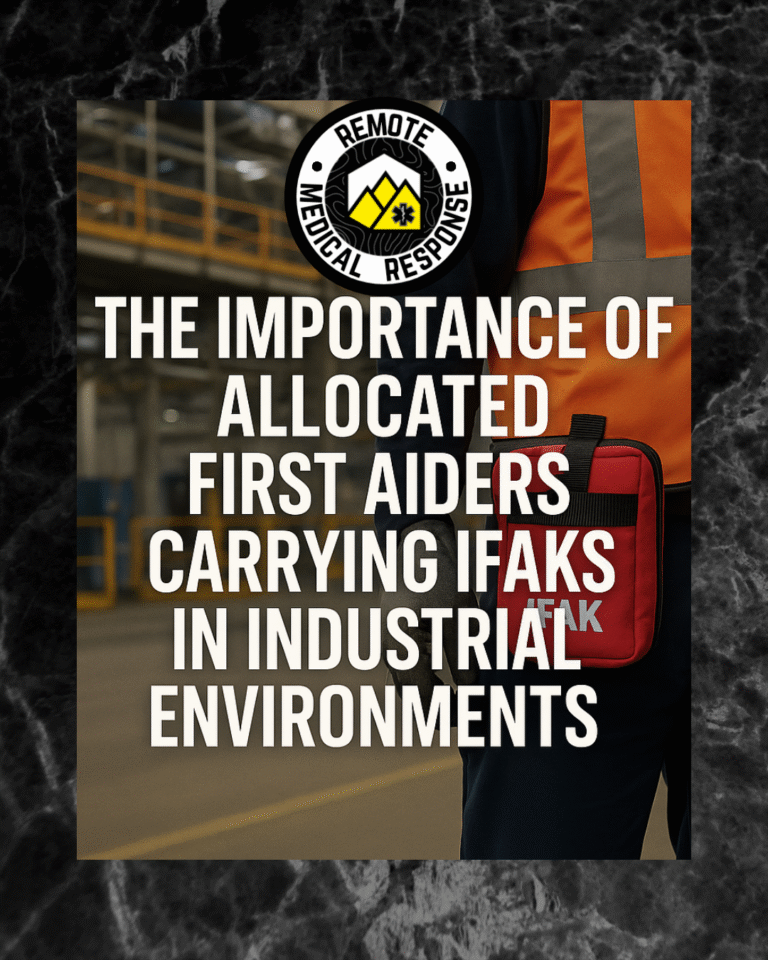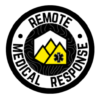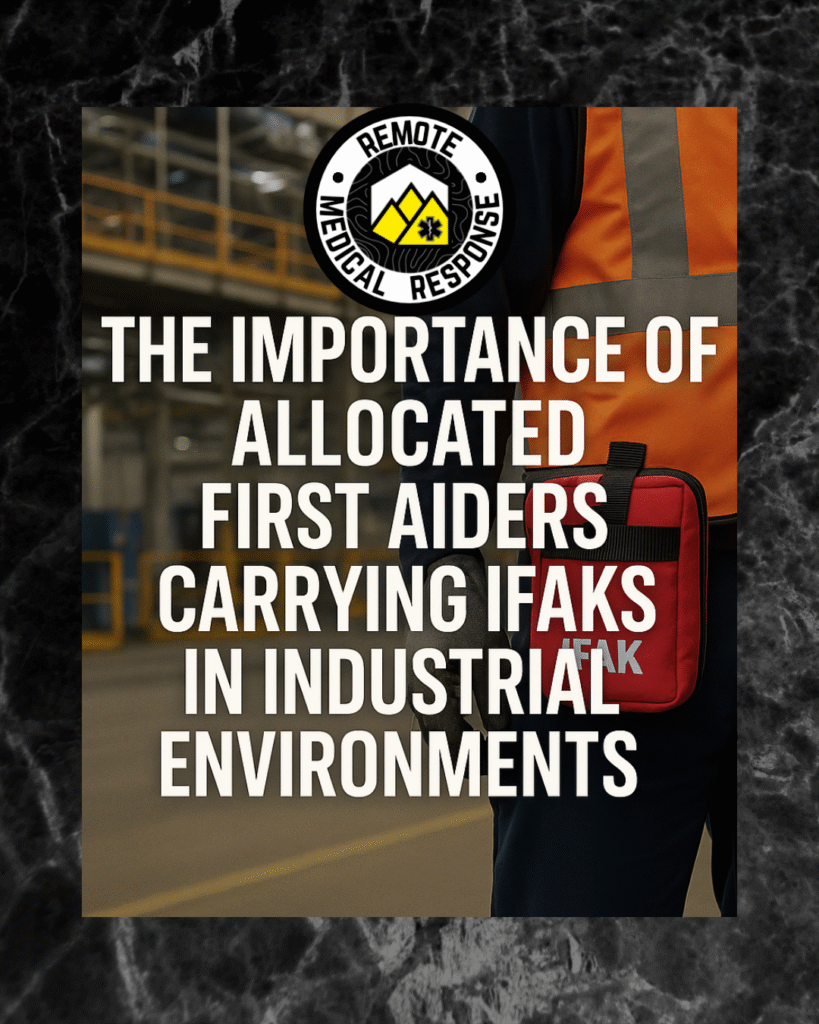
Executive Summary
Designated first aiders in UK industrial workplaces should be equipped with Individual First Aid Kits (IFAKs) to reduce treatment delays, improve outcomes, and fulfil legal obligations under UK health and safety legislation. Equipping trained responders with appropriate kit aligns with the Health and Safety (First-Aid) Regulations 1981, which require employers to provide adequate and appropriate first-aid provision based on risk assessment.
🧾 Legal & Regulatory Context (UK)
1. Health and Safety (First-Aid) Regulations 1981
These regulations require employers to:
- Provide adequate first aid equipment, facilities, and trained personnel
- Carry out a first-aid needs assessment to determine requirements based on the hazards and risks present
“First aid provision must be ‘adequate and appropriate in the circumstances’. This means employers should consider the risks and work environment and ensure provision matches those risks.”
— HSE First Aid at Work Guidance
2. HSE First Aid Needs Assessment
For higher-risk workplaces (e.g. manufacturing, construction, workshops, forestry, rope access), the HSE recommends:
- Immediate access to trauma care for major bleeding, crush injuries, or burns
- Additional training in catastrophic bleeding management (e.g. use of tourniquets and haemostatic dressings)
This guidance supports the inclusion of IFAKs for designated first aiders, particularly in:
- Remote locations or large worksites with delayed emergency medical access
- Work environments with moving machinery, tools, electrical risks, or sharp objects
🎯 The Role of IFAKs in Industrial Response
1. Rapid Response to Life-Threatening Injuries
- Severe haemorrhage, airway obstruction, and chest trauma can become fatal within minutes.
- IFAKs enable point-of-injury care without delay, especially on large sites or where waiting for a central first aid room would waste time.
“The faster the bleeding is controlled, the greater the chance of survival.”
— NHS England, 2024 Bleed Control Campaign
2. Encourages Recovery and Reduces Downtime
- Early intervention reduces infection risk and the need for advanced treatment later.
- Workers who receive immediate, effective first aid are more likely to recover and return to work quickly.
3. Supports Confidence and Competence of First Aiders
- When paired with Catastrophic Bleeding CPD (e.g. tourniquet training), first aiders feel empowered, not under-equipped.
- Improves morale and demonstrates an employer’s commitment to health and safety.
🔧 IFAK Contents Aligned to UK Risk Profiles
A basic trauma-configured IFAK for industrial first aiders might include:
- CAT-style Tourniquet (CE approved)
- Haemostatic Gauze -impregnated dressings or Compressed Z Gauze.
- Emergency Trauma Dressing
- Vent chest seal (for puncture/blast injury)
- Trauma shears, gloves, thermal blanket
- Eye wash ampoules or saline pods
- Face shield for CPR
- Burn gel dressing (Burnshield or equivalent)
These items support the Public Access Trauma (PAcT) First Aid Kits endorsed by UK security services and NHS for catastrophic injuries.
🧪 Evidence from UK Practice
- UK Fire & Rescue Services, Forestry Workers, Utility Companies, and IRATA rope access teams are increasingly equipping front-line staff with personal IFAKs for high-risk environments.
- The Forestry Industry Safety Accord (FISA) already recommends carrying tourniquets and haemostatic dressings when working with chainsaws in remote areas.
📌 Recommendations for Employers
- Update First Aid Needs Assessments
- Consider allocating individual trauma kits to all first aiders in high-risk, remote, or dispersed sites.
- Factor in response time to central first aid rooms or external services.
- Train Staff in Catastrophic Bleeding
- Ensure all first aiders receive annual CPD or refresher on the use of trauma equipment.
- Standardise IFAK Issue and Checks
- Keep IFAKs in pouches, worn on PPE or tool belts.
- Conduct regular kit audits (similar to fire extinguisher or AED checks).
✅ Conclusion
Providing IFAKs to designated first aiders in UK industrial workplaces:
- Supports legal obligations under UK First Aid Regulations
- Improves casualty outcomes through faster response
- Reduces downtime and promotes recovery
- Builds a safety-first culture across high-risk environments
📩 Interested in IFAKs or First Aid Training?
Remote Medical Response Ltd provides industry-specific first aid training and can help you source high-quality, trauma-grade IFAKs tailored to your work environment.
✅ Custom kit recommendations
✅ Accredited training in catastrophic bleeding
✅ Remote, rope access, and high-risk environment expertise
📞 Ready to equip your team?
Get in touch with us today:
👉 Email: info@remotemedicalresponse.com
👉 *Or use our contact form to start a conversation.

